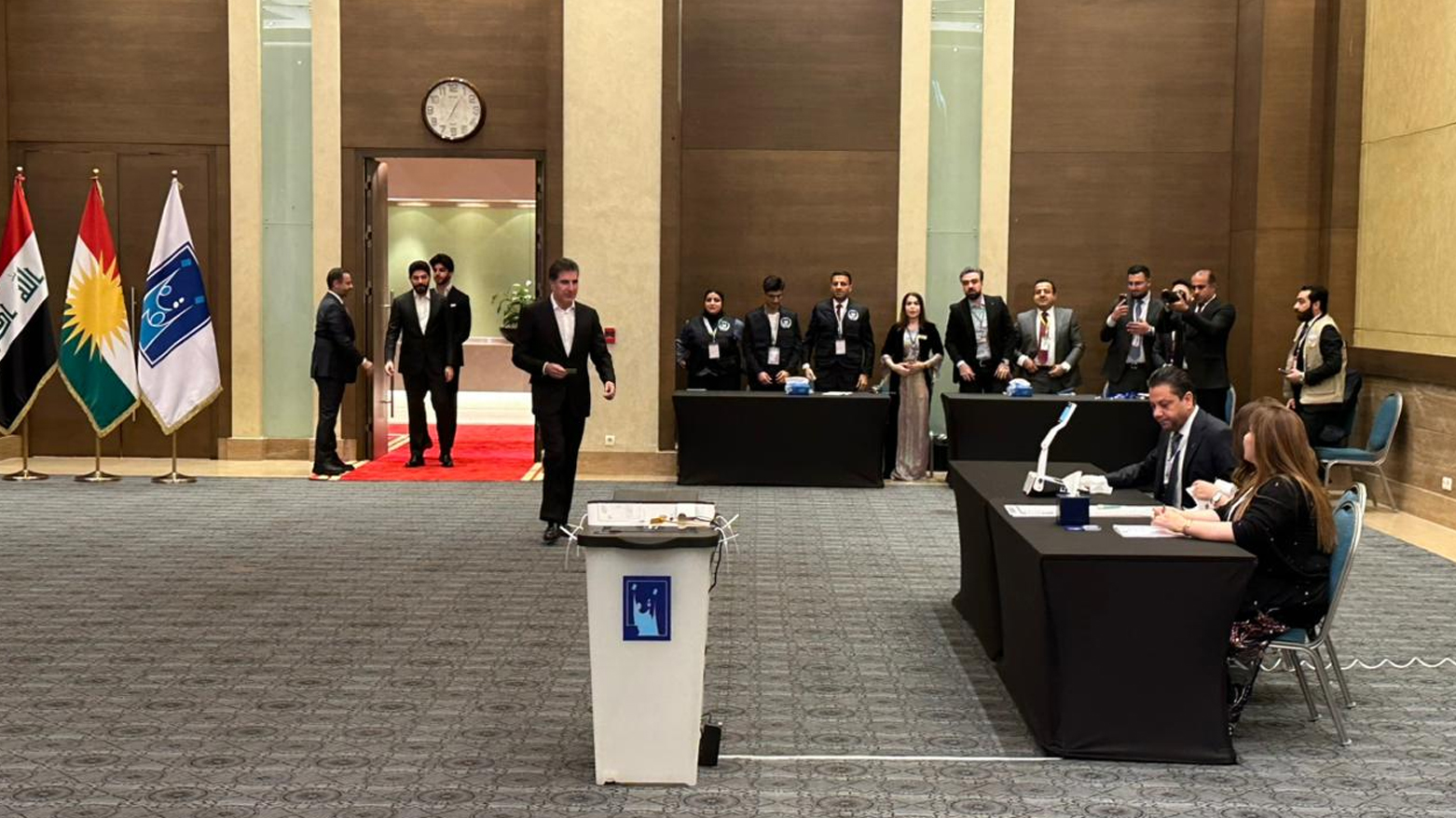Kurdistan Region President casts his vote in Iraq’s parliamentary elections
Kurdistan Region President Nechirvan Barzani cast his vote in Iraq's parliamentary elections, urging citizens to participate in the democratic process. Over 2.8 million Kurdish voters are eligible across 1,312 polling centers.

ERBIL (Kurdistan24) — Kurdistan Region President Nechirvan Barzani cast his vote on Tuesday morning, November 11, 2025, as Iraq’s general parliamentary elections officially began across the Kurdistan Region and the rest of the country.
The nationwide vote marks the sixth legislative election since Iraq’s liberation in 2003, taking place amid relative stability in the oil-rich nation following decades of wars and corruption that deeply eroded its infrastructure.
According to the Independent High Electoral Commission (IHEC), more than 20 million eligible voters are entitled to participate in this year’s elections, including over 2.8 million voters in the Kurdistan Region.
Polling stations opened their doors at 7:00 a.m. and are scheduled to remain open until 6:00 p.m., with voting being monitored electronically and secured by local security forces and surveillance cameras.
Ahead of the vote, President Nechirvan Barzani urged citizens of the Kurdistan Region to actively participate in the electoral process, describing voting as both a “right and a responsibility.”
“Voting is a right, a duty, a message, and a trust — a national responsibility and an opportunity for renewal,” Barzani said in a statement released on Monday evening, calling on all eligible voters to make their voices heard.
Nabard Omar, head of the IHEC office in the Kurdistan Region, told Kurdistan24 that all logistical and technical preparations were completed ahead of election day.
“We have 2.8 million registered voters in the Kurdistan Region distributed across 1,312 polling centers in Erbil, Duhok, Sulaimani, and Halabja, with 5,599 polling stations ready,” Omar said.
“All voting machines have been delivered, ballot papers printed, and voter lists finalized. Every necessary arrangement has been made.”
Meanwhile, the Erbil Election Security Committee issued a statement urging private-sector employers to grant their workers two hours of leave on election day to enable them to exercise their constitutional right to vote.
“We call on all companies and business owners in Erbil province to allow their employees to head to polling stations freely and safely to cast their votes,” the committee said.
This year’s election sees more than 7,740 candidates, roughly one-third of them women, competing for 329 parliamentary seats representing Iraq’s 46-million-strong population. Only 75 independent candidates are contesting, with the majority running within established political alliances and major party lists.
The general voting follows Sunday’s special voting process, which allowed members of the security forces and displaced persons to cast their ballots ahead of the public election.
With tight security measures in place and all polling stations under surveillance, the IHEC expressed optimism that the process would proceed peacefully and transparently throughout the day.
Tuesday’s election is viewed as an important milestone in Iraq’s continuing democratic process.
While political competition remains intense, especially among leading blocs in Baghdad and the Kurdistan Region, authorities hope for a high turnout that would reaffirm public trust in Iraq’s electoral institutions and political future.